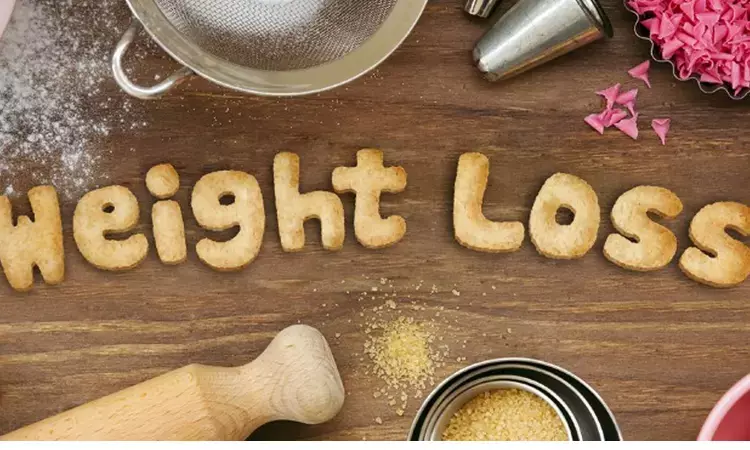- Home
- Medical news & Guidelines
- Anesthesiology
- Cardiology and CTVS
- Critical Care
- Dentistry
- Dermatology
- Diabetes and Endocrinology
- ENT
- Gastroenterology
- Medicine
- Nephrology
- Neurology
- Obstretics-Gynaecology
- Oncology
- Ophthalmology
- Orthopaedics
- Pediatrics-Neonatology
- Psychiatry
- Pulmonology
- Radiology
- Surgery
- Urology
- Laboratory Medicine
- Diet
- Nursing
- Paramedical
- Physiotherapy
- Health news
- Fact Check
- Bone Health Fact Check
- Brain Health Fact Check
- Cancer Related Fact Check
- Child Care Fact Check
- Dental and oral health fact check
- Diabetes and metabolic health fact check
- Diet and Nutrition Fact Check
- Eye and ENT Care Fact Check
- Fitness fact check
- Gut health fact check
- Heart health fact check
- Kidney health fact check
- Medical education fact check
- Men's health fact check
- Respiratory fact check
- Skin and hair care fact check
- Vaccine and Immunization fact check
- Women's health fact check
- AYUSH
- State News
- Andaman and Nicobar Islands
- Andhra Pradesh
- Arunachal Pradesh
- Assam
- Bihar
- Chandigarh
- Chattisgarh
- Dadra and Nagar Haveli
- Daman and Diu
- Delhi
- Goa
- Gujarat
- Haryana
- Himachal Pradesh
- Jammu & Kashmir
- Jharkhand
- Karnataka
- Kerala
- Ladakh
- Lakshadweep
- Madhya Pradesh
- Maharashtra
- Manipur
- Meghalaya
- Mizoram
- Nagaland
- Odisha
- Puducherry
- Punjab
- Rajasthan
- Sikkim
- Tamil Nadu
- Telangana
- Tripura
- Uttar Pradesh
- Uttrakhand
- West Bengal
- Medical Education
- Industry
Ouick weight loss linked to lowered CKD risk among men with NAFLD: Study

CHINA: According to a study published in the journal Obesity, patients with obesity and high blood pressure may experience a lower risk of developing chronic kidney disease (CKD) with a short-term weight loss of at least 7% of body weight.
According to reports, 20–30% of adults have non-alcoholic fatty liver disease (NAFLD), which is often associated with other metabolic conditions. NAFLD has been associated with chronic kidney disease (CKD), which has a high incidence rate, high rates of morbidity and mortality, and significant medical expenses. Some metabolic risk factors that are also metabolic comorbidities of NAFLD are linked to CKD.
The purpose of the study was to investigate the relationship between obesity and chronic kidney disease (CKD) following the development of nonalcoholic fatty liver disease (NAFLD).
The link between obesity and chronic kidney disease (CKD) after the emergence of non-alcoholic fatty liver disease (NAFLD) was investigated in this prospective cohort research of 10,311 adult Chinese men. In order to examine advanced CKD risk in NAFLD with various baselines or trajectories in obesity measurements, the Fine-Gray model was used.
Key highlights of the study:
- Subjects who had obesity but did not have obesity on a subsequent BMI measurement in a subset of the cohort having access to a second BMI measurement had a considerably lower risk of developing CKD than those who had constant obesity (adjusted HR, 0.62).
- The incidence rates of CKD were the same in the groups with and without obesity (BMI, 25) during the course of a median follow-up of 10.1 years following NAFLD diagnosis (6.39 and 5.81 per 1000 person-years, respectively).
- A decreased risk for CKD was observed in NAFLD patients with a weight reduction of at least 10% (HR = 0.58) and 7.0% to 9.9% (HR = 0.53) compared to those with a weight change of less than 4.9%.
- Patients with high blood pressure were the only ones who had a decreased risk of losing less than 7% of their body weight when compared to people who were of stable weight (adjusted HR = 0.48).
The authors concluded that in males with NAFLD, losing weight may prevent the development of CKD. For the management of NAFLD, it's critical to track weight, waist-hip ratio, and circumference measurements. However, future research in other demographics is required, they added.
REFERENCE
Hu, S, Li, X, Sun, Y, et al. Short-term weight loss decreased the risk of chronic kidney disease in men with incident nonalcoholic fatty liver disease. Obesity (Silver Spring). 2022; 30( 7): 1495- 1506. doi:10.1002/oby.23459
Dr Kamal Kant Kohli-MBBS, DTCD- a chest specialist with more than 30 years of practice and a flair for writing clinical articles, Dr Kamal Kant Kohli joined Medical Dialogues as a Chief Editor of Medical News. Besides writing articles, as an editor, he proofreads and verifies all the medical content published on Medical Dialogues including those coming from journals, studies,medical conferences,guidelines etc. Email: drkohli@medicaldialogues.in. Contact no. 011-43720751


